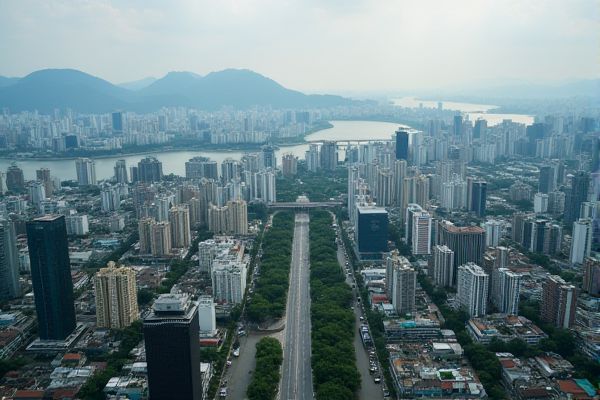
Moving to Vietnam checklist: Obtain a valid Vietnamese visa. Research housing options in advance. Understand local customs and etiquette. Arrange international health insurance. Learn basic Vietnamese phrases. Set up a local bank account. Familiarize with the local transportation. Research cost of living expenses. Prepare necessary vaccination records. Connect with expatriate communities.
Obtain a valid Vietnamese visa.
To obtain a valid Vietnamese visa, applicants need to prepare the required dossier and submit the application at designated offices of the Immigration Department. The processing time typically takes within 5 working days. For those seeking an e-visa, the preferred method is to apply online through the [Vietnam Electronic Visa Portal](https://xuatnhapcanh.gov.vn/en/tin-tuc/procedures-visa-application-foreigners-vietnam), which can be found on new domains such as https://thithucdientu.gov.vn or https://evisa.gov.vn.
Research housing options in advance.
When moving to Vietnam, it is crucial to research housing options in advance, considering diverse choices such as modern high-rise apartments, traditional houses, and luxury villas, particularly in areas like District 1, District 2 (Thao Dien), and District 7 (Phu My Hung), which offer various amenities and lifestyles tailored to expats. For more detailed guidance, make sure to consult the comprehensive Checklist Before Moving to Vietnam, which provides valuable insights to ensure a smooth transition.
Understand local customs and etiquette.
To move to Vietnam, it is crucial to understand local customs and etiquette, which include respecting elders, dressing modestly, using both hands for giving and receiving items, and following specific dining and greeting protocols to avoid unintentional offenses and show respect for the culture. Key practices involve bowing slightly when greeting, addressing individuals by their titles, and adhering to traditional table manners such as using chopsticks correctly and waiting for the eldest to start eating. For a comprehensive guide to these cultural nuances, you can visit Vietnam Travel to ensure a respectful and immersive experience.
Arrange international health insurance.
When moving to Vietnam, it is crucial to arrange International Health Insurance to cover medical expenses, as Vietnam's healthcare system is uneven and often requires medical evacuation to major cities. Comprehensive health insurance plans with emergency evacuation coverage are highly recommended to avoid significant medical costs and ensure access to quality healthcare.
Learn basic Vietnamese phrases.
To prepare for moving to Vietnam, learning basic Vietnamese phrases is crucial. Start with essentials like "Xin chao" (hello), "Cam on" (thank you), "Xin loi" (sorry), "Toi khong hieu" (I don't understand), and "Bao nhieu?" (how much), along with social and eating-out phrases to help you navigate everyday interactions. For a comprehensive guide and more [Vietnamese Phrases](https://www.contiki.com/six-two/article/vietnamese-phrase/), this resource can be immensely helpful in making your transition smoother. By familiarizing yourself with these fundamental expressions, you can effectively converse and connect in Vietnam's vibrant environment.
Set up a local bank account.
To set up a local bank account in Vietnam, you need to present a valid passport, a visa or resident card, proof of residence (such as a rental contract or utility bill), and complete the bank's application form. Some banks may also require additional documents like a work permit or employment contract. For a comprehensive guide on the process, you can visit the Opening A Bank Account In Vietnam Guide which provides detailed information on the necessary steps and requirements.
Familiarize with the local transportation.
To familiarize yourself with local transportation in Vietnam, you can use various options such as taxis, Grab and GrabBike, cyclos, public buses, and trains. For longer trips, consider domestic flights, sleeper buses, or trains, and for a unique experience, opt for an Easy Rider Motorbike Tour.
Research cost of living expenses.
In Vietnam, the cost of living varies by city, but a couple can enjoy a middle-class lifestyle in Hanoi or Ho Chi Minh City for around $900 to $1,469 per month. The expenses are even lower in smaller cities like Da Nang, Hoi An, and Nha Trang, where a budget of $800 to $1,100 per month can provide a comfortable lifestyle. For more detailed insights, you can explore the Vietnam Living Cost information, which offers a comprehensive overview of the expenses involved in residing in various regions of Vietnam.
Prepare necessary vaccination records.
To prepare necessary vaccination records for moving to Vietnam, ensure you are up-to-date with routine vaccinations and consider additional vaccines such as typhoid, hepatitis A, hepatitis B, Japanese encephalitis, rabies, influenza, COVID-19, pneumonia, meningitis, and others as recommended by the CDC and WHO. For comprehensive guidance, consider visiting the Passport Health USA website, where you can find detailed advice tailored for travelers to Vietnam, helping to ensure your health and safety while abroad.
Connect with expatriate communities.
Connect with expatriate communities in Vietnam through InterNations, which offers a platform to meet other expats, attend local events, share hobbies, and get valuable advice and tips on living in Vietnam. This community helps you integrate into Vietnamese culture, find support, and make friends, making your expat life in Vietnam more successful.
